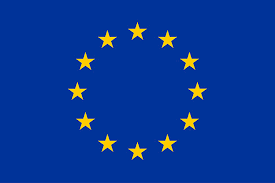
AMID the hustle and bustle of the recently ended 2023 edition of the European Film Festival at Mbare Art Space, it was gratifying to see some barefooted boys and girls with dusty knees mingle with important guests and officially invited patrons.
Older women from the neighbourhood could also be seen sometimes with babies strapped to their backs, finding no inconvenience in putting down their wares for a moment.
The non-stereotypical attendees made it clear that the festival has reached a new audience that is an important but often overlooked demographic.
The festival, which was established by the European Union delegation to Zimbabwe in 2016, is intended to showcase the best European cinema as an enriching cross-cultural exchange.
The platform also offers local talent an opportunity to shine through the BIOSKOP Short film competition, which this year was held under the theme Crossing Borders.
The competition is meant to bring out the unique worldview and experiences of Zimbabweans.
Winners from the different categories were Mann Friday (Fight For Me) for Best Cinematography, My Name is My Name — Best Narrative Short, Create Zimbabwe: Art across Cities — Best Documentary Short, Enigma Gems — Best Diaspora Film and Daughter of The Soil for Best Sound Editing.
Daughter of The Soil is narrated using impressive symbolism, aural atmosphere and gestures making it accessible to young people of different ages and level of literacy.
- A peep into Matenganyika’s artistic closets
- The Bioskop Short Film Competition is back
- The Bioskop Short Film Competition is back
- Biskop Short Film 2022 finalists announced
Keep Reading
This was evident from the attention it drew during the three days of the festival.
The title recalls Wilson Katiyo’s popular novel A Son of the Soil about the struggles of growing up in colonial Zimbabwe. It is a term associated with a native sense of belonging and identification.
The film, which runs just over 21 minutes, carries a strong message about identity that is empowering for young African women.
To the question: “Where am I?” it offers a reassuring response: “You are home”.
Directed by Derrick Manieca and written by Shayileti Ndarambwa, who plays the leading character Shona, Daughter of the Soil features a diverse cast made up of singer Tahle Wedzinza as Afriterra, Fungai Muzoroza — Mother Earth, Christine Matyavira — Water Goddess, Jennipher Madiriza — Goddess of the Sun, Anotida Chapfika — Mother Nature, Rosebud Tsikira — Goddess of Wealth, Fertility, Healing and Morality, Chiedza Rwodzi — Warrior Goddess of Truth Order and Justice, Celeste Mushore — Feminine Goddess of Love and Sexuality, Tendaishe Chitima — Goddess of Knowledge, Creativity and Wisdom, Nicollete Andrea Hassen — Goddess of Air, Wind and Storms, Chelsea Benhura — Moon Goddess, Deborah Kabongo — Goddess of Fire, Passion and Power, and Danayi Madondo as Goddess of Heart.
The cast presents complexities of complexion through a mix of actresses with dark and light skin, together with those who have albinism and vitiligo.
The cast is also body positive as it is inclusive of different shapes and sizes. In a more subtle way, the selection of the cast also avoids bias in relation to age.
Scenes in the colourful and vibrant film switch from a mystical cave to majestic waterfall, sandy beach, golden fields, verdant forests, traditional homestead, imperial golden thrones, and panoramic mountaintops.
Symbolic elements of earth, wind, fire and water punctuate the scenes at various points.
The all-female characters have ethnic hairstyles, make up, headwear, and jewellery.
They also carry traditional implements and tools such as a clay pot, reed fan and mbira. The archetypal characters exude self-awareness and confidence as they move, dance and narrate their stories, which serve to initiate the leading character.
A symbolic transformation happens as Shona, who at the beginning wakes up seemingly lost in a cave, ascends to a mountaintop where she is welcomed by the female deities and appears to be ordained into full womanhood.
Daughter of the Soil is a beautiful film whose message is accessible to young people of different ages, and levels of literacy, and this was evident from the attention it received from the young people of Mbare high-density suburb during the festival.
Executive producer Rwodzi, who plays a part in the film, says: “It highlights the importance of knowing one’s identity and the relevance that history plays in the world that is ever changing and dictating who you should be.”







